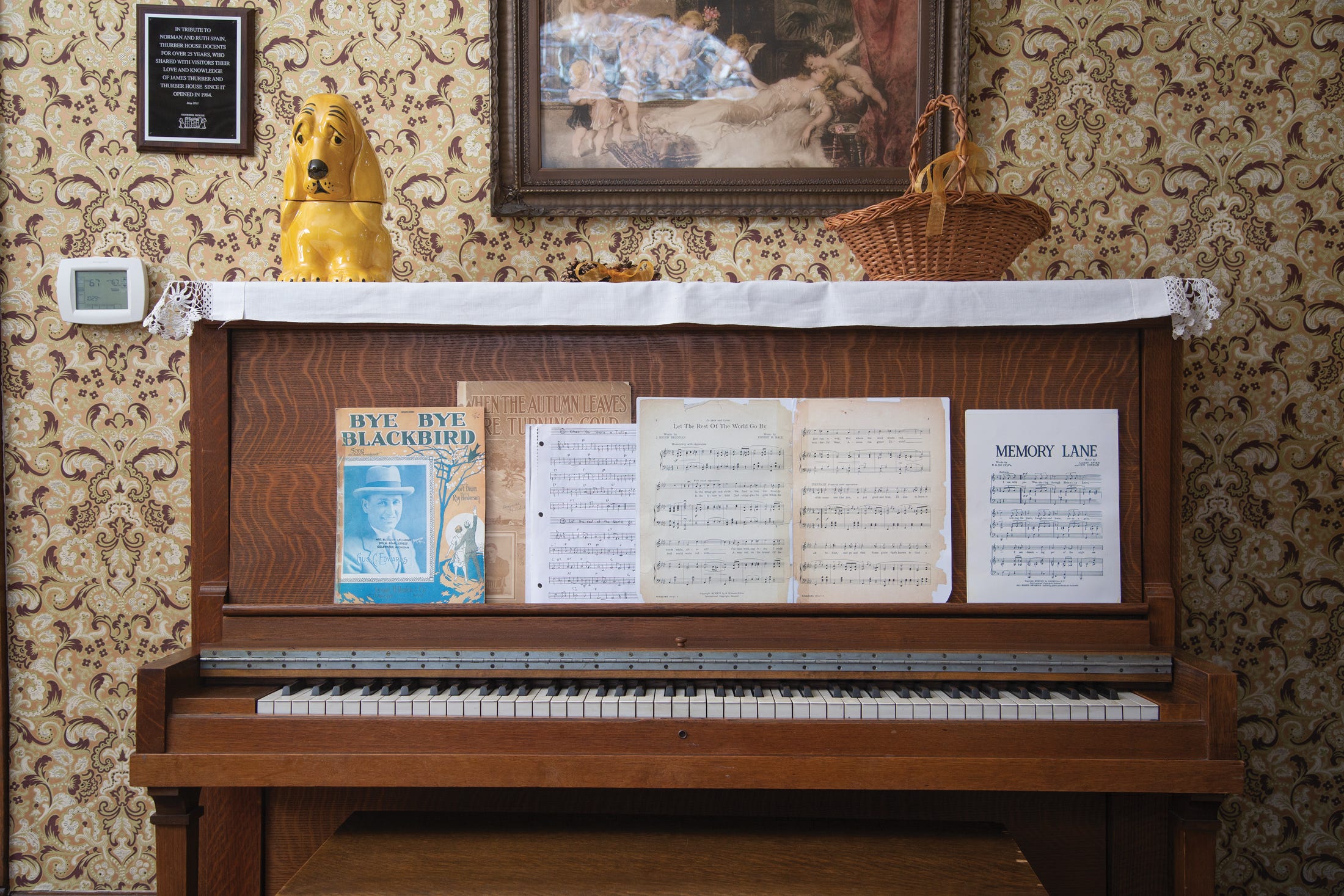Can Columbus' Thurber House Survive the Pandemic?
The Columbus literary institution battles the severe financial fallout from COVID-19.

In 1918, years before his cartoons and stories about feuding humans and surly canines charmed readers, Columbus native James Thurber penned a letter referencing that year’s raging influenza pandemic. Writing from Washington, D.C., he sounded true to form—bewildered, distraught and a touch sarcastic. “All one sees here is nurses and hearses and all he hears is curses and worse.”
Now, a century later, the literary center and museum that bears his name is contending with its own pandemic. Thurber House, a former residence on Jefferson Avenue where the humorist lived for a spell in the 1910s, has battled with the severe financial fallout from COVID-19 that’s plaguing many art institutions. While some have made reopening attempts, it has remained closed since shutting down in March, becoming a lonely monument not just to Thurber but, for now, to pre-pandemic arts.
Initially, Thurber House leadership expected that the shift to virtual author talks and other similar events would be easier for them than for performing arts groups, which rely on big crowds, says executive director Laurie Lathan. But as the pandemic dragged on, participation in its online talks, literary camps and workshops has fallen. So have fees and tuition.
“At the onset of the pandemic, transitioning to online programming, everybody received a decent amount of support, but it’s been a gradual decrease since then,” says Lathan, who blames “virtual programming fatigue.”
Some of Thurber House’s signature initiatives have also been postponed or curtailed. The highly regarded Thurber Prize for American Humor, which would have been awarded in the fall, will now be handed out in a virtual event in late spring, and there was no annual writer’s residency program.
The suspension of so many income-generating activities resulted in Thurber House’s budget for last fiscal year dropping to $580,000, down from $640,000. Then, in the fall, came the realization that an infusion of money was necessary to retain its full staff of five, all of whom were needed to prepare for an eventual reopening.
The 36-year-old institution issued a desperate plea for support, initiating a fundraising campaign to generate $100,000. Luckily, a windfall arrived around the time the campaign got underway: The Ohio Arts Council, using funds from the CARES Act, awarded Thurber House $70,000 above and beyond its own fundraising. “I feel like we can take just a five-minute breather,” Lathan says.
Meanwhile, the original fundraising campaign had brought in upwards of $80,000 by late December. Together, the two sources of money enabled the organization to maintain its staffing and should be sufficient to see the nonprofit through until spring, when leaders hope that hybrid events can resume. Lathan expresses optimism about the return of in-person events in the summer.

Rosemary Thurber, the writer’s daughter and an honorary trustee, remains resolute in her belief in the organization’s mission. “I am glad that a Thurber family home still stands, but what is most important is the teaching of the good news that words matter—storytelling and humor are vital,” she says via email from her home in South Haven, Michigan.
Would Thurber have found something darkly comical in the bleakness of the COVID-shuttered world? Those who honor his legacy give themselves permission to laugh.
“What’s getting us through this pandemic is the humor,” Lathan says. “As Thurber said, humor must be preserved at all costs.”